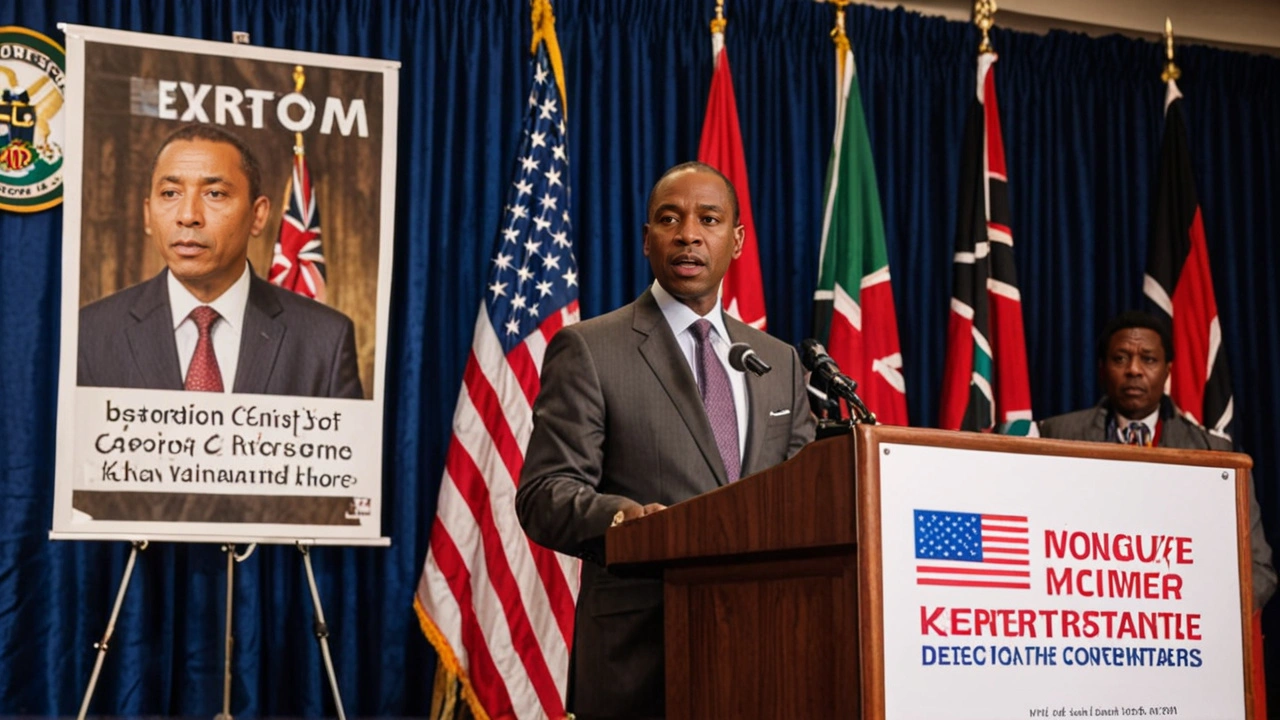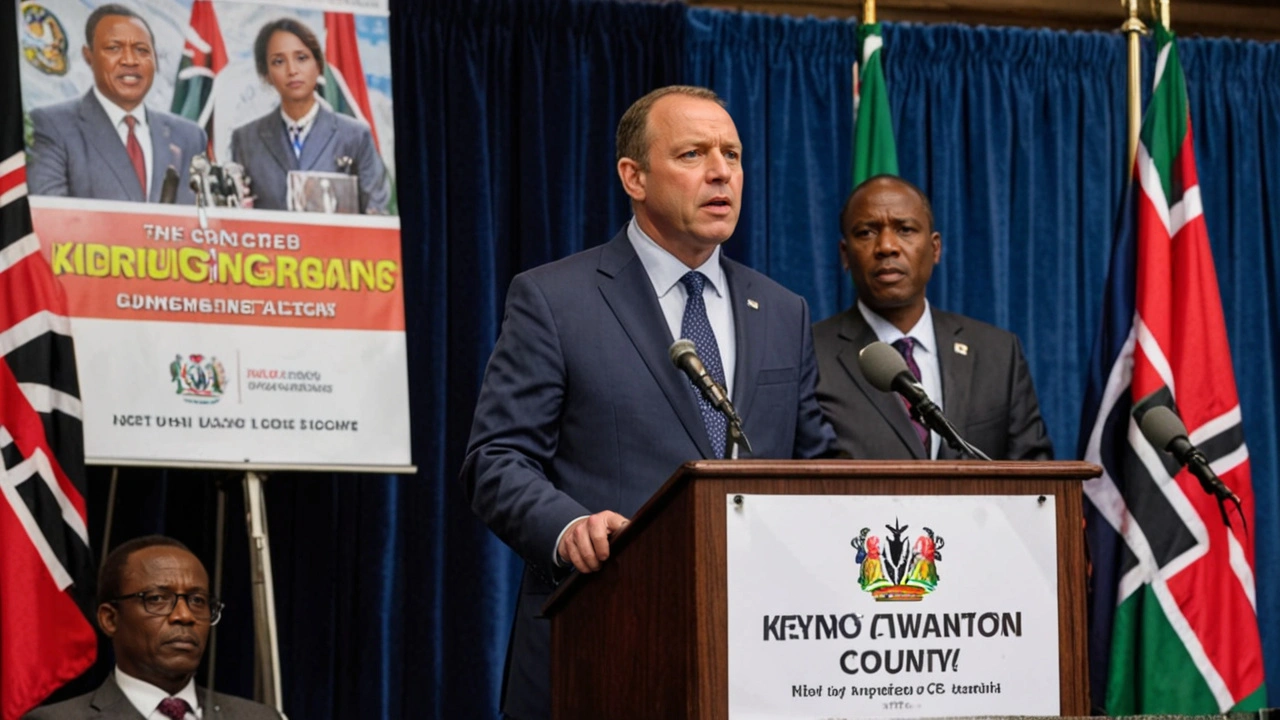Tatu City Accusations Against Kiambu Governor
Tatu City, recognized as one of Kenya's largest recipients of foreign direct investment, has leveled serious accusations against Kiambu County Governor Kimani Wamatangi and his advisor, Salome Wainaina. The company claims the governor has attempted to extort Sh4.3 billion (approximately USD 33 million) by demanding free land as a precondition for approving Tatu City’s new Master Plan.
The allegations were revealed in a detailed letter entitled 'Pending Issues,' reportedly authored by Salome Wainaina. In this letter, Tatu City was asked to 'surrender' more than 40 acres of land, including property designated for the governor’s residence. Tatu City has argued that, according to Kenyan law, there is no legal requirement or established procedure compelling them to give up land without proper compensation from the county.
The Impact on Investment and Employment
Tatu City’s spokesperson has highlighted the significant repercussions that this dispute has had on both the county and the country. The company estimates that the ongoing delay in the approval process has cost more than Sh16 billion (about USD 125 million) in lost potential investment. In terms of employment, the delay has stalled the creation of approximately 4,500 new jobs, particularly affecting the youth in Kenya. Since its establishment, Tatu City has been a considerable economic engine, creating over 20,000 jobs since 2021 and drawing more than Sh385 billion in investments.
Among the numerous facilities developed by Tatu City are a global 5,000-seat call center and advanced cold storage and logistics infrastructures. The impact of these facilities is far-reaching, contributing significantly to the local economy and providing a substantial number of employment opportunities.

Governor's Response and Legal Implications
Governor Wamatangi has strongly denied the extortion claims made by Tatu City. In a counter-move, the governor has demanded a public apology from the company, asserting that the accusations are unfounded and damaging to his reputation. Should Tatu City fail to issue an apology, Governor Wamatangi has threatened to pursue legal action against the company.
Tatu City has adamantly stood by its claims, insisting that the governor’s alleged actions are obstructive and detrimental to the county’s development. The company is urging for immediate intervention and clarification from the County Executive Committee, specifically demanding the issuance of a no objection letter to proceed with the revised Master Plan.
Economic Implications for Kiambu County
The potential economic fallout from this conflict extends beyond Tatu City’s immediate investments. Experts argue that such accusations cast a shadow on the broader investment climate within Kiambu County, potentially discouraging future foreign direct investments. This could have long-term repercussions on the county's economic growth and job creation capabilities.
For a county that relies heavily on both local and international investments, these allegations can erode investor confidence, leading to slowdowns in project approvals and implementations. Investors look for stable and transparent governance when deciding where to allocate their resources, and disputes of this nature cast doubt on the county’s ability to provide such an environment.

The Role of Legal Framework and Governance
This controversy also brings into focus the critical role that legal frameworks and governance play in regulating land use and property rights. Tatu City has pointed out that their demands are legally baseless, stressing the need for clear and unambiguous laws governing land transfers and investments. An effective legal structure ensures that property rights are protected, and disputes are resolved efficiently, fostering a conducive environment for business operations and investments.
Moving forward, there is an urgent need for establishing more robust mechanisms for transparency and accountability at all levels of government. Public confidence in local governance structures is vital for sustainable development and economic growth. Perceived corruption and extortion can undermine efforts to attract and retain investments, as well as jeopardize the livelihoods of residents who stand to benefit from new projects and economic opportunities.
Conclusion: A Call for Resolution
In light of these developments, there is a pressing need for a swift and fair resolution. Ensuring that legal and administrative processes are adhered to will not only resolve the immediate dispute but also pave the way for future investments. Both parties must engage in constructive dialogue aimed at reaching a mutually beneficial agreement that prioritizes the economic and social well-being of Kiambu County residents.
The allegations against Governor Wamatangi underscore the importance of integrity in public office, which is critical for building investor confidence and fostering economic development. As this story unfolds, the central issue remains the need for a transparent, fair, and legally sound approach to managing large-scale investments in the region.


Sh4.3 billion in land? That’s not extortion, that’s a business model.
Transparency, legal clarity, and due process are not optional-they are foundational to sustainable economic development.
Perhaps the real issue isn’t extortion, but the lack of a transparent land valuation framework that treats both public interest and private investment as equally legitimate.
Extortion? Maybe. But also, exploitation dressed in blueprints and investor brochures.
Investor-state dispute settlement mechanisms should be invoked immediately.